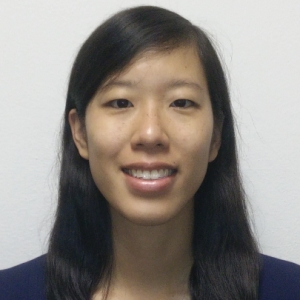Overview
Audience Q&A: https://app.sli.do/event/aPSF8kUkZXDnNSXByoQvev/live/questions
Robots now have advanced perception, navigation, grasping and manipulation capabilities, but how come it’s still exceedingly difficult to bring these skills together to get a robot to autonomously tidy a room? A key limiting factor is that robots still lack the contextual scene understanding capabilities that allow humans to efficiently and compactly reason about our world and our actions within it. Metric (where) and semantic (what) representations are now common, but contextual (how) representations–how do objects interrelate and how can a robot interact with objects to achieve the task?–are still missing. How should we formulate these representations, and crucially, how can we allow robots–embodied agents–learn and update their contextual scene understanding from live experiences? Researchers in AI knowledge representation and reasoning as well as in the more distant field of linguistics have long grappled with similar questions. The goal of this workshop is to bring together those experts with researchers in the fields of robot scene understanding and long-horizon planning to discuss the state of the art and uncover synergies across the currently disparate disciplines.
Schedule
| Time | Speakers/Authors |
|---|---|
| 09:00-09:10 | Welcome |
| 09:10-09:40 | Invited talk: Shuran Song (Columbia University) Hierarchical Representations for Language-Based Reasoning [Recording] |
| 09:40-10:10 | Invited talk: Jiayuan Mao (MIT) Neuro-Symbolic Concepts for Robotic Manipulation [Recording] |
| 10:10-10:30 | Spotlight presentations |
| 10:30-11:00 | Coffee break and posters |
| 11:00-11:30 | Invited talk: Janet Wiles (The University of Queensland) Social Robots and Language Technologies: What can Robotics Learn from the Language Sciences? [Recording] |
| 11:30-12:00 | Panel discussion: Reasoning and representations [Recording] |
| 12:00-13:30 | Lunch |
| 13:30-14:00 | Invited talk: Rajat Talak (MIT) Spatial Perception for Robotics: Representation, Structure, and Real-Time Systems [Recording] |
| 14:00-14:20 | Best paper talk: Stefano Ferraro, Pietro Mazzaglia, Tim Verbelen, Bart Dhoedt FOCUS: Object-Centric World Models for Robotics Manipulation |
| 14:20-15:00 | Spotlight presentations |
| 15:00-15:30 | Coffee break and posters |
| 15:30-16:00 | Invited talk: Manolis Savva (Simon Fraser University) 3D Simulation for Embodied AI: Emerging Challenges & Opportunities [Recording] |
| 16:00-16:30 | Invited talk: Helisa Dhamo (Huawei) Scene Understanding via Semantic Scene Graphs [Recording] |
| 16:30-17:00 | Panel discussion: 3D scene understanding [Recording] |
| 17:00-17:30 | Closing remarks |
Publications
- Niaz Ahmad, Jawad Khan, Youngmoon Lee
Keypoints as Dynamic Centroids: Centroid based Human Pose and Segmentation - Zuxin Liu, Mohit Deshpande, Xuewei Qi, Ding Zhao, Rajasimman Madhivanan, Arnie Sen
Learning to Explore (L2E): Deep Reinforcement Learning-based Autonomous Exploration for Household Robot - Harnaik Dhami, Vishnu Sharma, Pratap Tokekar
Pred-NBV: Prediction-guided Next-Best-View Planning for 3D Object Reconstruction - Jared Strader, William Chen, Nathan Hughes, Alberto Speranzon, Luca Carlone
Informing 3D Scene Graph Generation with Common-Sense Spatial Knowledge - Joel Loo, David Hsu
Behaviour Graphs: A Semantic-contextual Representation for Robot Navigation - Francesco Argenziano, Vincenzo Suriani, Daniele Nardi
Enhancing Graph Representation of the Environment through Local and Cloud Computation - 🥇 Stefano Ferraro, Pietro Mazzaglia, Tim Verbelen, Bart Dhoedt
FOCUS: Object-Centric World Models for Robotics Manipulation - Chenchang Li, Zihao Ai, Tong Wu, Shuting Zhang, Huazhe Xu, Wenbo Ding
DeformNet: Latent Space Modeling and Dynamics Prediction for Deformable Object Manipulation - Krishan Rana, Sourav Garg, Jesse Haviland, Jad Abou-Chakra, Ian Reid, Niko Suenderhauf
Leveraging 3D Scene Graphs in Large Language Models for Task Planning - Bipasha Sen, Aditya Agarwal, Gaurav Singh, Brojeshwar Bhowmick, Srinath Sridhar, Madhava Krishna
SCARP: 3D Shape Completion in ARbitrary Poses for Improved Grasping - Daniel Dauner, Marcel Hallgarten, Andreas Geiger, Kashyap Chitta
Parting with Misconceptions about Learning-based Vehicle Motion Planning - Paul Kremer, Hriday Bavle, Jose Luis Sanchez-Lopez, Holger Voos
S-Nav: Semantic-Geometric Planning for Mobile Robots - Jianhao Jiao, Ruoyu Geng, Yuanhang Li, Bowen Yang, Ming Liu
Online Metric-Semantic Mapping for Autonomous Navigation - Junyao Shi, Jianing Qian, Yecheng Ma, Dinesh Jayaraman
Plug-And-Play Object-Centric Representations From “What” and “Where” Foundation Models
🥇: Best paper award
Call for Papers
⏰ DEADLINE EXTENDED until June 30 ⏰
Submission link: https://cmt3.research.microsoft.com/robrepworkshop2023/Submission/Index
Participants are invited to submit an extended abstract or short papers (up to 4 pages in RSS format) focusing on novel advances in 3D scene understanding, predicate/affordance reasoning, high-level planning and at the boundary between these research areas.
Important dates: (deadlines are AoE on the respective date)
- Submission deadline:
May 22June 30 - Acceptance notification
- For papers submitted before May 22: June 16
- For papers submitted after May 22: on a rolling basis
- Camera ready submission:
June 23June 30 - Workshop date: July 10, 2023
Topics of interest include but are not limited to:
- Novel algorithms for spatial perception that combine geometry, semantics, and context;
- Approaches to learning and structuring contextual knowledge from complex sensory inputs;
- Techniques for reasoning over spatial, semantic, and temporal aspects for long-horizon planning;
- Approaches that combine learning-based techniques with geometric and model-based estimation methods; and
- Position papers and unconventional ideas on how to reach human-level performance in robot scene understanding, task planning and execution.
Contributed papers will be reviewed by the organizers and a program committee of invited reviewers. Accepted papers will be published on the workshop website and will be featured in spotlight presentations and poster sessions.
LaTeX template link: https://roboticsconference.org/docs/paper-template-latex.tar.gz
Instructions for Authors of accepted papers:
You will have the opportunty to present your work in a spotlight presentation which should last no longer than 5 minutes, followed by a short time for questions from the audience. For more in depth discussions, we invite you to prepare a poster for the poster session.
Important dates:
- By June 30: Submit camera ready paper on CMT
- By July 8: Submit presentation slides via email to fjulian AT ethz DOT ch
- By July 10: Prepare poster (A0 or digital) and bring it to the workshop
Organizers

Jen Jen Chung
Associate Professor
The University of Queensland

Luca Carlone
Associate Professor
Massachusetts Institute of Technology

Julian Förster
Doctoral candidate
ETH Zürich
